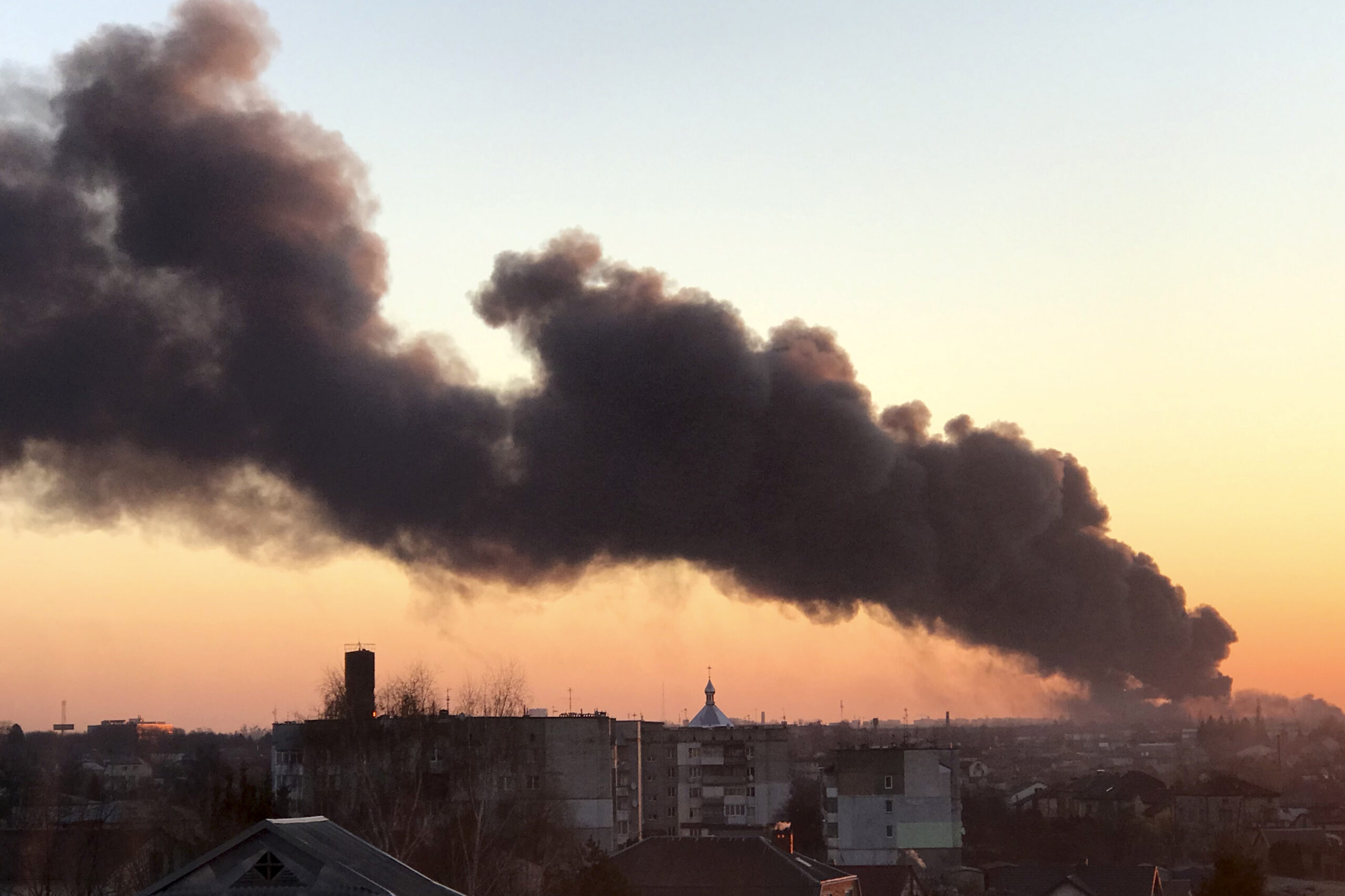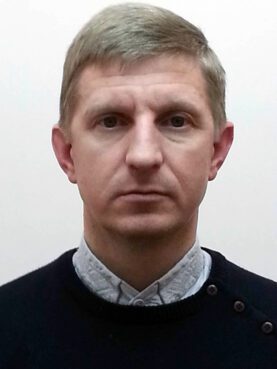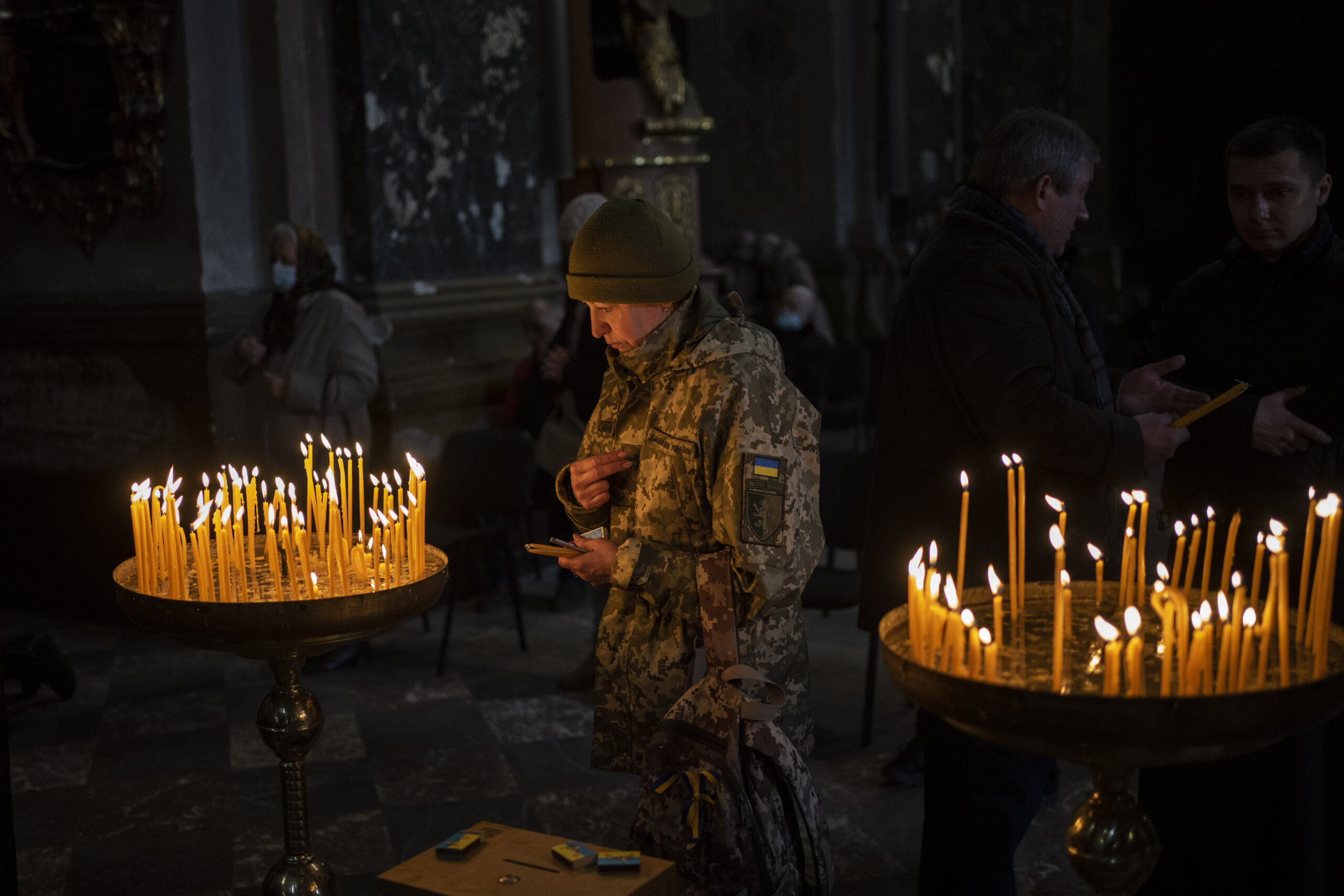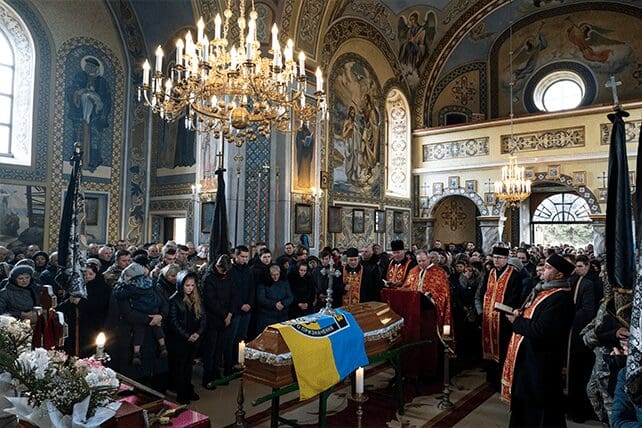I should say that they (those Ukrainian priests under the Moscow Patriarchate) are trying not to raise their voices. It seems to me they don’t know what will be next for their church in Ukraine. But you should understand, and keep in mind, that I’m talking mostly from the perspective of the Ukrainian Greek Catholic Church.

A cloud of smoke rises after an explosion in Lviv, western Ukraine, March 18, 2022. (AP Photo, File)
What is the weekly service schedule like during wartime?
Normally for Lviv parishes, we serve liturgies every day. So every day in our parish, we have liturgy, matins, vespers.
So we continue our daily schedule.
But the archeparchy decided, when the war started, to pray day and night. So starting from the end of February, in our parish, for example, we (have) had constant, ongoing prayer day and night. The whole day is divided into one hour (slots). A person is responsible for that hour.
It’s not easy, you know. Getting up in the night. But it’s our spiritual front.
We call it parish prayer, it’s mostly lay people who take responsibility for a concrete hour. (Though also) priests participate in this chain of prayer.
What are some other things the Greek Catholic Archeparchy in Lviv is doing in response to the war?
One of the first archeparchal decisions, in addition to prayer, was that priests should stay in their parishes. Many priests sent their families abroad at the end of February and it seems to me now that many families of priests are abroad. Priests cannot cross the border now, because it’s wartime and during wartime many men (are not permitted) to cross the border. Many priests see their family only over the internet.

The Rev. Oleksiy Zavada. Courtesy photo
From the beginning of the war, my family moved to a village near the Polish border. They are still there. And once, every two weeks, I try to visit them. For an American, it’s not a big distance: 70-80 km. But for Ukrainians it’s quite far. Normally I arrive Sunday in the evening and on Monday afternoon, I depart to Lviv again.
What have you noticed people in your parish struggling with the most during this time of war?
Many of our people are always (consumed) by the news: in social media, Facebook, TV, radio. A person cannot stay, all the time, in the news. So people needed to have some rest. It seems to me they found a short time of peace while in church, in prayer.
Also to do active things, it seems to me, helps our people. For example, women in the parish, they prepare vereniki (traditional Ukrainian dumplings). For them it’s like their weekly service. They get together for a couple of hours, they prepare vereniki, some others prepare cakes. We freeze them and we find a way to pass this food to our soldiers. Or to those people who are in need.
These active things — preparing food, cooking, baking — it helps people not to be involved in the news all the time.
Have you noticed more people coming to church during the war?
Many, many people, not only from the north of Ukraine, eastern Ukraine, southern Ukraine, (but also) many people from western Ukraine moved abroad. Especially young people, young families with small children. I very often hear from priests that the number of people who visit church is reduced. And also we should keep in mind, before the war was the pandemic. So we have had different restrictions for liturgical presence and participation.
You describe such a lot going on in Lviv, from constant funerals to constant prayer. Are you tired, Father? How are you feeling?
How am I feeling?
It’s a difficult question.
Truthfully, I should like to have some rest. (He laughs.) I would like to have a vacation. But I think that for now it’s not possible for me. And I say to myself, my situation, as a priest in Ukraine living here in the western part of Ukraine — in comparison to those priests in the north part of Ukraine, or east or south — we are in quite good condition.
During this war we cannot say we are tired. I just compare my situation (to the) situation of those who are under rockets and bombs. For now my conscience says I cannot have rest. I should work. We should work all together. Of course many people say, I am tired. But if we say this, we will lose this war. We will have rest after victory.

A Ukrainian woman dressed in military attire prays inside the Sts. Peter and Paul Garrison Church in Lviv, western Ukraine, March 6, 2022. (AP Photo/Bernat Armangue)
This article originally appeared here.

